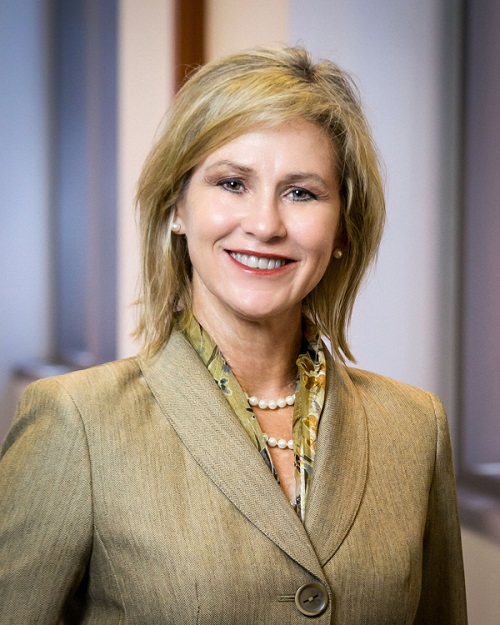By: Leah Witcher Jackson Teague, Professor of Law & Director of Business Law Program and Leadership Development Program, Baylor Law School
Thanks to Robin Thorner, Assistant Dean, Office of Career Strategy, at St. Mary’s Law School, law faculty and staff interested in professional identity formation efforts gathered twice in the fall to converse. The next conversation is scheduled for this Thursday, January 26, at 3:00 p.m. Central using the following link via Zoom. I plan to join and hope you will too!
During the fall gatherings, a common request was for more information about law schools’ processes for addressing the recent amendments to ABA 303 and descriptions of programs, events, and activities. In this post, I offer some insight on the background for our work at Baylor Law and also thank the Holloran Center for encouraging us, and so many others, in our work in the areas of professional development and leadership development. In a future post, I will describe Baylor Law’s ongoing review process of our professional identity formation efforts in response to the amendments to ABA Standard 303.
At Baylor Law, professional identity formation efforts have been part of the fabric of our program throughout our 165-year history, but not by that name. As I recently wrote in a post, professional development and leadership development, in an informal manner, have been “baked” into our program from the beginning. Baylor Law’s mission statement expresses a desire to “develop lawyers who are able to practice law with competence, serve with compassion, and provide effective and ethical leadership.” We strive to prepare our students for the demands they will face as members of the legal profession. We also want them to be better equipped to use their legal education and training, along with their status in society as lawyers, to serve effectively and be difference makers.
Our approach to legal education (which incorporates legal analysis, practical lawyering skills, and professionalism) aligns with the scaffolding approach advocated in Educating Lawyers: Preparation for the Profession of Law (more commonly referred to as the “Carnegie Report”). The Carnegie Report, published in 2007, described the three dimensions of professional education that are necessary to adequately prepare students for their careers and professional obligations. The three dimensions for legal education were described as:
- Critical thinking skills and legal knowledge that have been the traditional focus of law schools.
- Practice application and skills development through experiential education as mandated in the ABA Standards beginning approximately 2005.
- Professional identity formation defined as “effective ways to engage and make their own the ethical standards, social roles, and responsibilities of the profession, grounded in the profession’s fundamental purposes.”
This scaffolding approach to legal education aligns perfectly with the practical, values-based, and service-oriented approach to legal education at Baylor Law. When the Carnegie Report came out in 2007, I admittedly did not give its findings and recommendations the attention it deserved, that is, not until hearing presentations and reading articles from our friends at the Holloran Center (specifically Co-Directors Neil Hamilton and Jerry Organ and Holloran Center Fellow Lou Bilionis) and others who devoted years to improving the professional development and ethical leadership of our law students.
Before meeting these dedicated teachers and scholars, we had already begun our own efforts at Baylor Law to enhance and incorporate more emphasis on professional identity formation and professional development of our students, including the creation of our Professional Development Program and Leadership Development Program in 2014. Validation that we were on the right track with our approach to legal education came for us in the fall of 2016 when Neil Hamilton and Lou Bilionis traveled to Waco, Texas to lead our Baylor Law faculty and staff in a workshop. The Holloran Center team complimented us on our multi-dimensional, multi-year approach. Baylor Law professors were encouraged to better communicate to our students the efforts already in place to teach and enforce professionalism. I offer my perspective of fundamental aspects of our approach to teaching and training Baylor Lawyers:
- teach students to think like lawyers;
- offer a variety of practical skills training opportunities;
- require a rigorous practicum in the third year;
- insist upon professionalism (work ethic, respect for one another, integrity, etc.) in all interactions inside and outside the classroom; and
- encourage students to adopt a service orientation in their professional and personal endeavors.
The Holloran Center initiatives continued to inform and inspire our work in the summers of 2017 and 2019, when Baylor Law faculty and staff joined teams from other law schools to attend Holloran Center summer workshops. Again, we were encouraged to compose a description of our professionalism training that spans from orientation through graduation. As part of our work in response to the 303 amendments, we are making a conscious effort to do so. More detail of our work in this area will be shared in a future post.
The Holloran Center’s work on professional identity formation continues to influence and inspire us as we seek to improve and enhance the “whole building” approach (as described by Dean Emeritus Bilionis) to teaching, training, and inspiring Baylor law students. Thank you!
I am always happy to visit further with anyone who desires additional information. Feel free to reach out to me at Leah_Teague@baylor.edu.

Leah Witcher Jackson Teague is the Professor of Law and Director of Business Law Programs at Baylor Law School.


